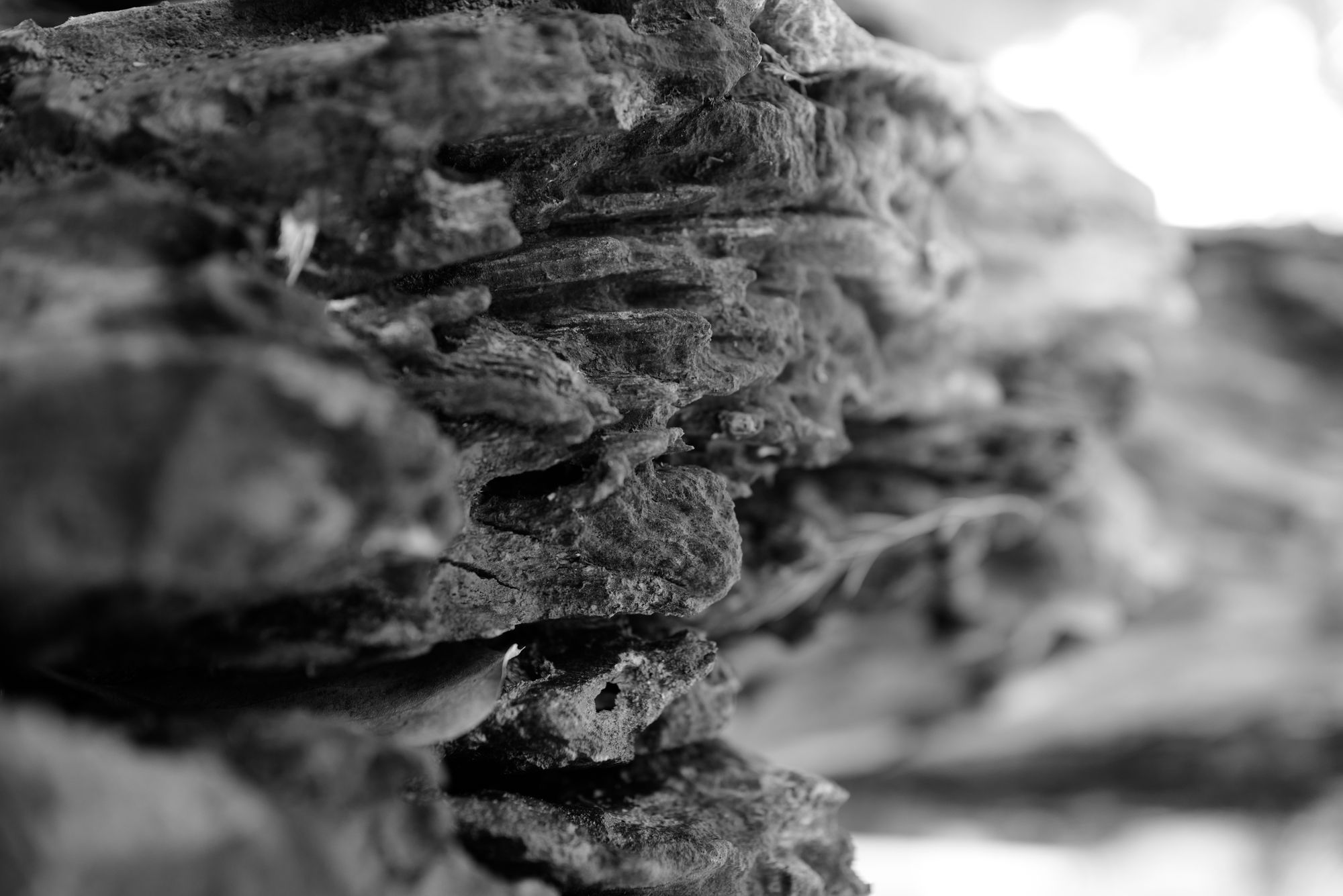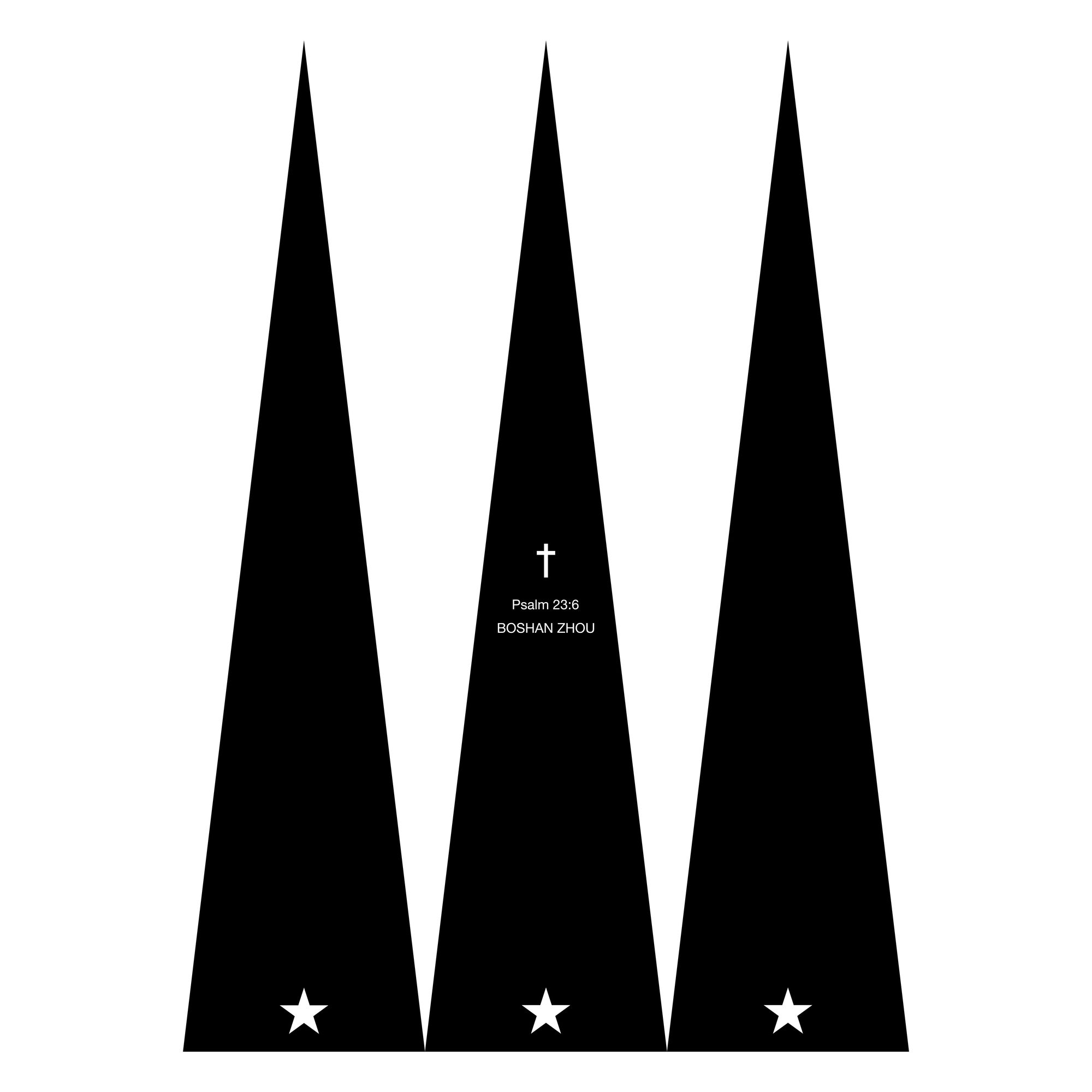
Genesis 29
标题:Genesis 29
年份:2020
尺寸:47.28 x 70.85 cm
Title: Genesis 29
Year: 2020
Dimension: 47.28 x 70.85 cm

「Genesis」系列作品,一共五十幅,对应《圣经》创世纪的五十章。
The "Genesis" series consists of 50 works, corresponding to the 50 chapters of the Bible's Genesis.
29 / 50.
29:1 雅各继续前行,到了东方人的地方。29:2 他看见田间有一口井;有三群羊躺卧在井旁,因为人都是用那井里的水给羊群喝;井口上有一块大石头。29:3 当所有羊群都到齐了,牧人就把井口的石头辊开,取水给羊群喝,然后把石头放回井口原处。29:4 雅各问这些牧人:“弟兄们,你们是哪里来的?”他们回答:“我们是从哈兰来的。”29:5 他问他们:“你们认识拿鹤的孙子拉班吗?”他们回答:“我们认识。”29:6 雅各又问他们:“他平安吗?”他们回答:“平安。你看,他的女儿拉结领着羊群来了。”29:7 雅各说:“现在太阳还高,不是牲畜聚集的时候;你们取水给羊群喝,再去牧放吧。”29:8 他们回答:“我们不能这样作,必须等到所有的羊群都到齐了,有人把井口的石头辊开,我们才可以取水给羊群喝。”29:9 雅各还跟他们说话的时候,拉结领着她父亲的羊群来了。拉结原来是个牧羊女。29:10 雅各看见了舅父拉班的女儿拉结,和舅父拉班的羊群,就上前来,把井口的石头辊开,取水给舅父拉班的羊群喝。29:11 雅各和拉结亲吻,就放声大哭。29:12 雅各告诉拉结,自己是她父亲的外甥,是利百加的儿子。拉结就跑去告诉她的父亲。29:13 拉班听见了关于外甥雅各的消息,就跑去迎接他,拥抱他,和他亲吻,带他到自己的家里。雅各就把一切经过都告诉拉班。29:14 拉班对雅各说:“你实在是我的骨肉。”雅各就与拉班同住了一个月。29:15 拉班对雅各说:“你因为是我的外甥,就要白白地服事我吗?告诉我,你要甚么报酬?”29:16 拉班有两个女儿;大的名叫利亚,小的名叫拉结。29:17 利亚的眼睛虽然可爱,拉结却生得身材美丽,样貌娟秀。29:18 雅各爱拉结,所以对拉班说:“我愿为你的小女儿拉结服事你七年。”29:19 拉班说:“我把她给你,比给别人更好,你就与我同住吧。”29:20 于是,雅各为拉结服事了拉班七年;他就看这七年好象几天一样,因为他爱拉结。29:21 雅各对拉班说:“期限到了,请把我的妻子给我,好让我与她亲近。”29:22 拉班就摆设筵席,邀请了那地方所有的人。29:23 到了晚上,拉班把自己的女儿利亚带来给雅各,雅各就与她亲近。29:24 拉班又把自己的婢女悉帕给了女儿利亚作婢女。29:25 到了早晨,雅各才看出原来是利亚,就对拉班说:“你向我作的是甚么事呢?我服事你,不是为了拉结的缘故吗?你为甚么欺骗我呢?”29:26 拉班回答:“大女儿还没有出嫁,就先把小女儿嫁出去,我们这地方是没有这规矩的。29:27 你与大女儿七天的庆典过了以后,我们也把小女儿给你,只是你要再服事我七年。”29:28 于是雅各这样作了。他与利亚七天的庆典过了以后,拉班就把自己的女儿拉结给雅各为妻。29:29 拉班又把自己的婢女辟拉给了女儿拉结作婢女。29:30 雅各也与拉结亲近,并且爱拉结胜过爱利亚;于是他再服事了拉班七年。29:31 耶和华见利亚失宠,就使她生育,拉结却不生育。29:32 利亚怀孕,生了一个儿子,就给他起名叫流本,因为她说:“耶和华看见了我的苦情,现在我的丈夫必爱我了。”29:33 她又怀孕,生了一个儿子,就说:“耶和华因为听见我失宠,所以又赐给我这个儿子。”于是给他起名叫西缅。29:34 她又怀孕,生了一个儿子,就说:“这一次,我的丈夫要依恋我了,因为我已经给他生了三个儿子。”因此给孩子起名叫利未。29:35 她又怀孕,生了一个儿子,就说:“这一次,我要赞美耶和华了。”因此给孩子起名叫犹大。这样,她才停止了生育。
创世记 29
29:1 Then Jacob continued on his journey and came to the land of the eastern peoples.29:2 There he saw a well in the open country, with three flocks of sheep lying near it because the flocks were watered from that well. The stone over the mouth of the well was large.29:3 When all the flocks were gathered there, the shepherds would roll the stone away from the well’s mouth and water the sheep. Then they would return the stone to its place over the mouth of the well.29:4 Jacob asked the shepherds, “My brothers, where are you from?” “We’re from Harran,” they replied.29:5 He said to them, “Do you know Laban, Nahor’s grandson?” “Yes, we know him,” they answered.29:6 Then Jacob asked them, “Is he well?” “Yes, he is,” they said, “and here comes his daughter Rachel with the sheep.”29:7 “Look,” he said, “the sun is still high; it is not time for the flocks to be gathered. Water the sheep and take them back to pasture.”29:8 “We can’t,” they replied, “until all the flocks are gathered and the stone has been rolled away from the mouth of the well. Then we will water the sheep.”29:9 While he was still talking with them, Rachel came with her father’s sheep, for she was a shepherd.29:10 When Jacob saw Rachel daughter of his uncle Laban, and Laban’s sheep, he went over and rolled the stone away from the mouth of the well and watered his uncle’s sheep.29:11 Then Jacob kissed Rachel and began to weep aloud.29:12 He had told Rachel that he was a relative of her father and a son of Rebekah. So she ran and told her father.29:13 As soon as Laban heard the news about Jacob, his sister’s son, he hurried to meet him. He embraced him and kissed him and brought him to his home, and there Jacob told him all these things.29:14 Then Laban said to him, “You are my own flesh and blood.” After Jacob had stayed with him for a whole month,29:15 Laban said to him, “Just because you are a relative of mine, should you work for me for nothing? Tell me what your wages should be.”29:16 Now Laban had two daughters; the name of the older was Leah, and the name of the younger was Rachel.29:17 Leah had weak(Or delicate) eyes, but Rachel had a lovely figure and was beautiful.29:18 Jacob was in love with Rachel and said, “I’ll work for you seven years in return for your younger daughter Rachel.”29:19 Laban said, “It’s better that I give her to you than to some other man. Stay here with me.”29:20 So Jacob served seven years to get Rachel, but they seemed like only a few days to him because of his love for her.29:21 Then Jacob said to Laban, “Give me my wife. My time is completed, and I want to make love to her.”29:22 So Laban brought together all the people of the place and gave a feast.29:23 But when evening came, he took his daughter Leah and brought her to Jacob, and Jacob made love to her.29:24 And Laban gave his servant Zilpah to his daughter as her attendant.29:25 When morning came, there was Leah! So Jacob said to Laban, “What is this you have done to me? I served you for Rachel, didn’t I? Why have you deceived me?”29:26 Laban replied, “It is not our custom here to give the younger daughter in marriage before the older one.29:27 Finish this daughter’s bridal week; then we will give you the younger one also, in return for another seven years of work.”29:28 And Jacob did so. He finished the week with Leah, and then Laban gave him his daughter Rachel to be his wife.29:29 Laban gave his servant Bilhah to his daughter Rachel as her attendant.29:30 Jacob made love to Rachel also, and his love for Rachel was greater than his love for Leah. And he worked for Laban another seven years.29:31 When the Lord saw that Leah was not loved, he enabled her to conceive, but Rachel remained childless.29:32 Leah became pregnant and gave birth to a son. She named him Reuben,(Reuben sounds like the Hebrew for he has seen my misery; the name means see, a son.) for she said, “It is because the Lord has seen my misery. Surely my husband will love me now.”29:33 She conceived again, and when she gave birth to a son she said, “Because the Lord heard that I am not loved, he gave me this one too.” So she named him Simeon.(Simeon probably means one who hears.)29:34 Again she conceived, and when she gave birth to a son she said, “Now at last my husband will become attached to me, because I have borne him three sons.” So he was named Levi.(Levi sounds like and may be derived from the Hebrew for attached.)29:35 She conceived again, and when she gave birth to a son she said, “This time I will praise the Lord.” So she named him Judah.(Judah sounds like and may be derived from the Hebrew for praise.) Then she stopped having children.
Genesis 29
在科学可以近乎解释一切的这个时代,我们已经倾向于习惯这个世界发生的一切和周围的一切,无论它有多不可思议,甚至习以为常到不再思考它的不可思议性。
宇宙为何以及如何诞生?为何宇宙大爆炸有一个从无到有的“开始”?为何生命会从“无”诞生到“有”?为何会有复杂、精密的生命的存在?为什么人体内的 DNA 和细胞像微观世界一样复杂而精确,却以高度有序的方式完成其工作,就像被设计和编程的另一个宇宙一样?
无论是哈雷彗星的椭圆运行轨道,笛卡尔浪漫的心形函数,人体曼妙的黄金分割,天空飘零的六边雪花,甚至一片落叶飘落,都是一段美妙的函数方程。大如宇宙,小如雪花,都能在这些公式之中看到神性的秩序。
爆炸带来的皆是毁灭。最初,什么都没有,“大爆炸”却产生了时间、物质和空间,没有逐步的生成,没有过渡的形态,只是一种二元翻转,从“不存在”到“存在”。宇宙复杂且广阔,却能用高度有序的数学公式来描述,诞生了秩序甚至生命。仅凭这一点就令人难以置信,足以使人们终生寻求真理。
“存在可以从不存在而来”的这种“自然发生论”观念的证据何在?怎么从非生命体获得生命?为何我们还是不知道如何切实地从死物质创造出生命,却坦然地默认生命可以从非生命诞生?
宇宙背后的真理如此令人惊叹又神秘,生命是如此不可思议,我们却如此地习以为常,甚至不再感叹这一切的神奇。
「自从造天地以来,神的永能和神性是明明可知的,虽是眼不能见,但藉着所造之物就可以晓得,叫人无可推诿。」罗马书 1:20
“科学的尽头是神学。” 我认为,尽管科学有其局限性,而神学提供了答案,但神学并不是要解释科学的不足,仅靠科学也无法触及神学的核心。然而,科学和神学并非对立面,也并不妨碍我们在探索求知的路上保留着一颗敬畏之心。
「诸天述说神的荣耀,穹苍传扬祂的手段。」诗篇 19:1
大自然的壮丽景色,很容易让人心生敬畏,但是我发现即便日常最被人忽视的细微之景,也是“穹苍”的一部分。从“大”可以很自然地想到“大”,但如果从“小”也能看到“大”,“大”则更显荣耀。
在这个系列,我不是在试图回答上述问题或者阐述我对上述问题的世界观和立场,我只是在一些我们习以为常甚至忽略的细微场景中看到了“创造者”留下的“痕迹”和“威严”。
因此,我制定了一条规则:试图通过被忽视的日常细微之景,从敬畏和好奇中看到“大”与“小”之间的关系,以小尺度为窗口,探索和思考宇宙,生命,永恒与创造之间的关系。
In an era where science can nearly explain everything, we have become accustomed to everything that happens in this world and everything around us, no matter how incredible it is, or even accustomed to stop thinking about its incredibility.
Why and how did the universe come from? Why does the universe's big bang have a "start" from nothing? Why is life born from "nothing" to "life"? Why is there complex, sophisticated creatures? Why is the DNA and cells in our body as complex and precise as a microcosm, but complete its work in a highly orderly manner, just like another universe designed and programmed?
Whether it is the elliptical orbit of Comet Halley, the romantic heart-shaped function of Descartes, the graceful golden section of the human body, the Six-sided snowflake falling from the sky, or even a leaf falling, all are wonderful function equations. As big as the universe and as small as snowflakes, divine order can be seen in these formulas.
The explosion brought about destruction. Originally, there was nothing, but the "Big Bang" produced time, matter, and space. There was no gradual development, no transitional forms, but a binary flip, from "non-existence" to "existence." The universe is complex and vast, but it can be described by highly ordered mathematical formulas, gave birth to order and even life. This alone is unbelievable enough to let people explore the truth throughout their lives.
What is the evidence for the "abiogenesis", which is "something can come from nothing"? How to get life from non-life? Why do we still not know how to actually create life from dead stuff, but frankly assume that life can be born from non-life?
The truth behind the universe is so incredible and mysterious, life is so incredible, we are so accustomed to it, we are no longer lamenting the incredibility of all this.
"For since the creation of the world God’s invisible qualities—his eternal power and divine nature—have been clearly seen, being understood from what has been made, so that people are without excuse." Romans 1:20
"The end of science is theology." I believe that although science has its limitations and theology provides the answer, theology is not to explain the deficiency of science, and science alone cannot reach the core of theology. However, science and theology are not opposites, and they do not prevent us from remaining awed on the road to exploring knowledge.
"The heavens declare the glory of God; the skies proclaim the work of his hands." Psalm 19:1
The magnificent scenery of nature can easily make people awe-inspiring, but I find that even the most slight sceneries that are most overlooked in daily life are also part of the "skies". You can think of "big" naturally from "big", but if you can also see "big" from "small", "big" is even more glorious.
In this series, I am not trying to answer the above questions or to express my views and positions on the above questions. I just saw the "traces" and "majesty" left by the "creator" in some slight scenes that we are accustomed to and even ignore.
Therefore, I created a rule: trying to see "big" from "small" - with awe and curiosity, through daily neglected slight scenes, with “small scale” as the window, to explore and think about the relationship between the universe, life, eternity and creation.
- Boshan Zhou
版权所有,未经许可,请勿擅自使用此图,侵权必究。
All rights reserved; those responsible for unauthorized usage and reproduction will be prosecuted.
©️ Boshan Zhou.
